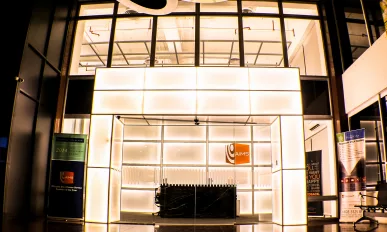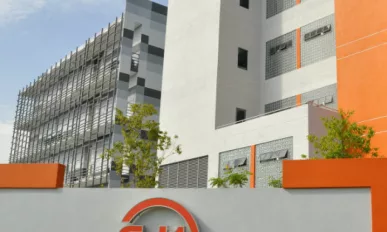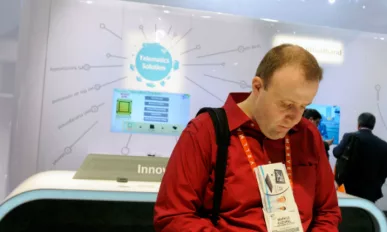Opportunities Emerge for Critical Power Infrastructure Development in ASEAN Region
Strong opportunities are emerging for critical power infrastructure service providers in the Association of Southeast Asian Nations (ASEAN) region.
Barracuda Networks Strengthens Worldwide Partner Programme
Barracuda Networks, Inc. has announced that it has enhanced its channel programme to provide the necessary structure and tools to allow resellers to successfully sell and support Barracuda solutions worldwide.
Aims Data Centre Sdn Bhd : The Centre of Malaysian Technology
As a market-leading subsidiary of TIME dotcom Berhad, AIMS Data Centre Sdn Bhd (AIMS) is optimising its investment power.
Emerson Network Power : Powering the Future of Data Centres
APAC Outlook Magazine talks to Hitesh Prajapati of Emerson Network Power about the future of data centres across the region.
Asia’s Space Race : The First Frontier
As China, Japan, India and South Korea enhance their space exploration offering, the rest of the world needs to take note of this rising nation.
Small Cells Asia : Ericsson Shares Top-Vendor Insights
Ericsson will share both global and local technical and business model insights at Small Cells Asia, April 20-21, Singapore.
AIMS Reinforces its Position as a Data Centre Hub
AIMS Cyberjaya Sdn Bhd (AIMS) has been appointed by Multimedia Development Corporation (MDeC) through an open tender to lead and deliver the ‘Inter-Data Centre (DC) Network initiative’.
Riege Software International Celebrates 30th Anniversary
“30 years of Riege Software International. 30 years of innovative thinking… There is more than one good reason to celebrate and focus on the imminent future,” said Johannes Riege, Founder and CEO of Riege Sotfware International.
Huawei Profits Jump, Firm Becomes a Global Force in the Mobile Market
Huawei is making more money than ever before, with a 33 percent increase in year-on-year profit from 2013, with smartphone sales driving these figures.
Modi and Twitter Launch New SMS Service in India
The Indian Prime Minister has joined forces with Twitter to launch a brand new service that will allow government officials to send tweets via SMS in a move to boost e-governance in the world’s largest democracy.



































